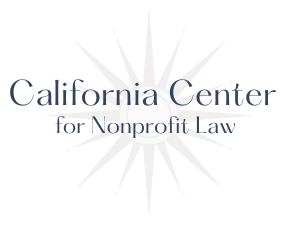
A Nonprofit Director’s Right of Inspection
Directors or board members of nonprofit organizations have certain rights and responsibilities under California law, including a right of inspection. These rights ensure that directors have all the information they need to do their jobs, while their responsibilities outline the necessary tasks they must complete as part of their jobs. We can help you understand the various roles in your organization, including the board of directors, and their respective privileges and duties under the law. The California Center for Nonprofit Law is here to advise you about the various legal requirements that impact your public charity. Contact our office to learn more about these and other important issues necessary to keep your charitable organization operating smoothly and complying with all federal, state, and local laws.
The Right of Inspection Under California Law
California Corporations Code §6334 states that the directors of public benefit corporations have “the absolute right at any reasonable time to inspect and copy all books, records and documents of every kind and to inspect the physical properties of the corporation of which such person is a director.”
Generally, the director can request an organizational document in their capacity as director for inspection and copying at any reasonable time, such as within business hours. Organizational documents cover a wide range of documents, including:
- Financial records, including bank statements, budgets, financial statements, information returns, and audits;
- Meeting minutes of board meetings and board committee meetings;
- Governing documents, such as articles of incorporation and bylaws;
- Operational policies and procedures, such as conflict of interest policies, confidentiality policies, IT policies, nepotism policies, etc.;
- Contracts and other legal documents, including lease agreements, service contracts, and purchase agreements; and
- Other nonpublic information, but only if necessary to fulfill the director’s fiduciary duties.
Restrictions on the Director’s Right of Inspection
While §6334 refers to an “absolute right” of a director’s right to inspection, that right is not truly absolute. For instance, a director may only exercise the right to inspection and copying in their capacity as director, not in any personal capacity. A director has a fiduciary duty to the corporation. Therefore, the director may not disclose confidential information to others or use the information for personal reasons, such as to derive a personal financial benefit. Simply put, the director may not use the information for any reason other than to carry out their fiduciary duties.
Some other privacy rights supersede a director’s right to inspection. For example, a director may not see the ballots of individual directors on a particular vote to safeguard their privacy. Another example involves a director’s right to inspection when that director has sued the corporation for damages. In that case, some documents generated by the corporation for the purposes of litigation may be protected by attorney-client privilege.
Contact Us Today for Legal Advice and Assistance
The California Center for Nonprofit Law concentrates its practice on legal matters that affect charities and other nonprofit organizations in California. Our unique focus allows us to keep ahead of constant local, state, and federal laws and policies as they develop over time. We are here to represent the interests of your nonprofit organization throughout every stage of your legal matter. Call us at (949) 892-1221, email us at info@NPOlawyers.com, or fill out our contact form online and schedule a consultation about your nonprofit organization today.
